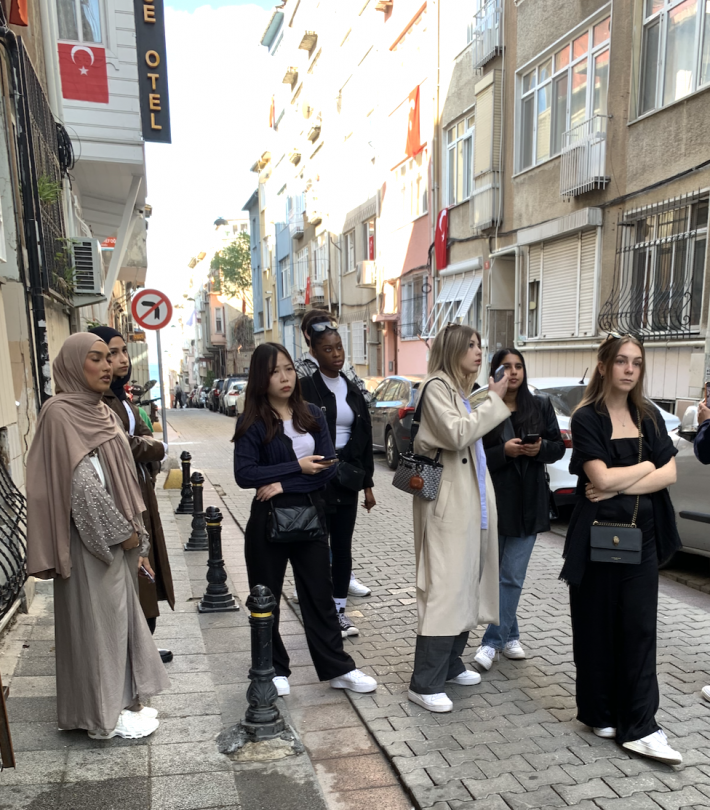The field trip to Istanbul was amazing and gave me much more to learn and experience than I had expected.
The first thing that struck me most was the number of homeless people in the city. However, I knew from the news and articles that Istanbul’s economic situation could have been better. Seeing so many children and adults on the streets was a big shock for me, especially coming from Japan. Another memorable experience was my conversation with a Turkish man my age working in the Grand Bazaar. When I told him that we were university students, he said: “I didn’t go to university because I’ve seen many people around me who went to university but couldn’t get a job. I’m happier here working every day than getting an education because I earn more money than them”. Speaking of education, he and I also saw many children working in restaurants in the city, even on weekdays. We heard that they have to work together as a family because they struggle to make a living.
Furthermore, when people found out that we were tourists in a restaurant, they requested a very high tip and demanded that we pay in euros or pounds instead of the local currency, the Turkish Lira. All of these attitudes gave me the impression of “take all you can get” and even though these situations tend to happen everywhere in the world, they seemed to be more apparent in Turkey. They made me feel the financial difficulties people face in the country.
Following the economic situation, the second most interesting part was the university lectures I attended on the relationship between the European Union (EU) and Turkey. As I mentioned in my blog before this trip, Turkey has not been able to join the EU for many years, and it was significant to hear about this from people studying in Turkey. I was very impressed by the Professor’s strong statement that “The EU needs Turkey, and Turkey needs the EU”, and was also very surprised to hear that although Turkey submitted the same document to the EU twice, in 1997 and 1999, the first time it was not accepted and the second time (when it was re-submitted after the country began to be considered geopolitically important), it was accepted. Learning this information from the lectures has made me want to re-learn the relationship between the EU and various countries, comparing the UK, a country that has left the EU, with Turkey, a country that has long wanted to join the EU.
I still like to learn from this interesting country. I have broadened my perspective by visiting the sites and interacting with the people. I am very grateful to the university for providing me with this opportunity.
Kazumi Hirai
